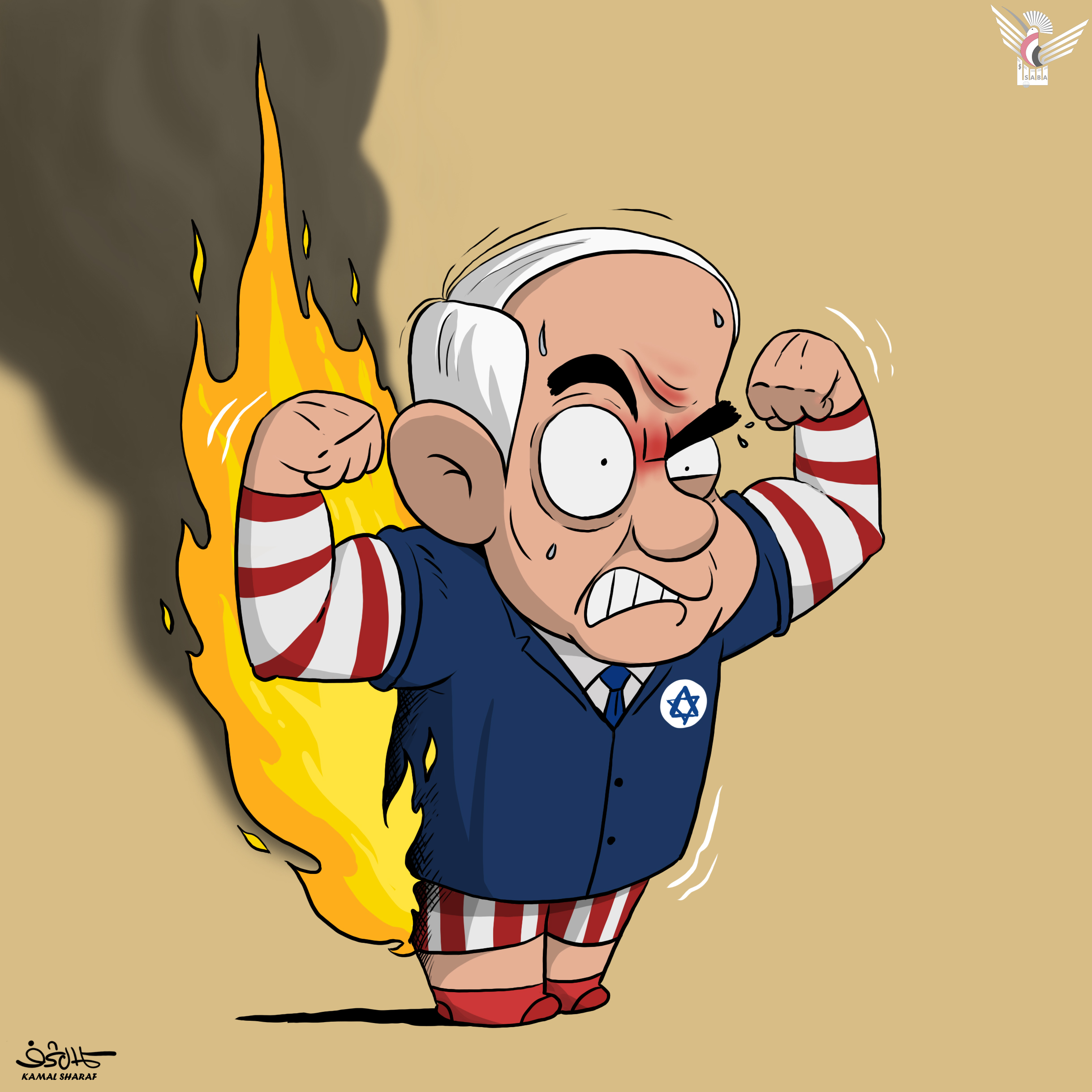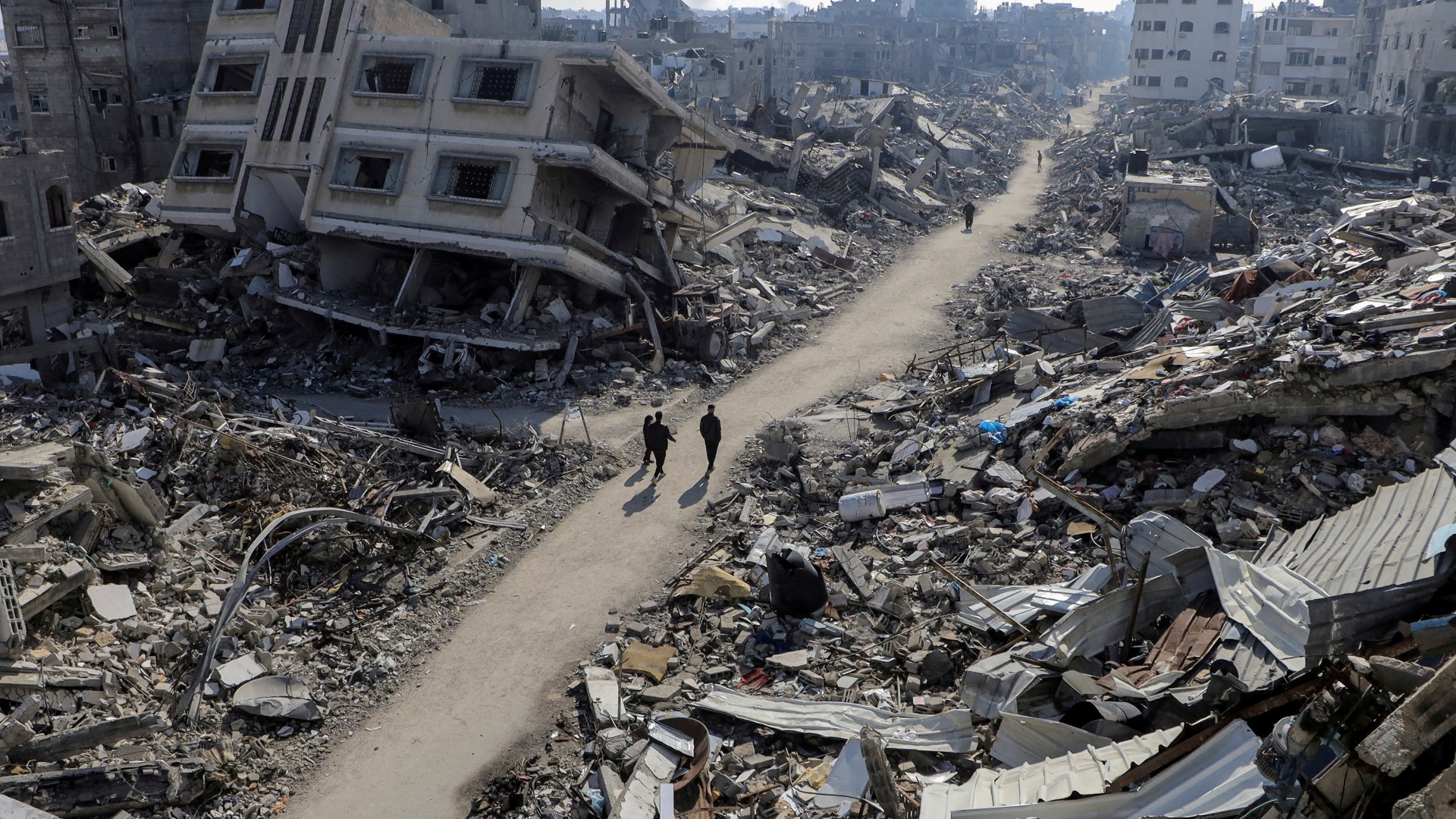Sana'a - Saba:
Despite the efforts exerted by Arabs and Americans to make the ceasefire and prisoner exchange negotiations in the Gaza Strip a success and the circumstances that the region is going through, it seems that the attempt is similar to its predecessors and will fail and the aggression on Gaza will continue, because the war criminal, the head of the Zionist entity's government, Benjamin Netanyahu, was able to "booby-trap" these negotiations with a basic demand, which is a temporary and not permanent ceasefire, which will enable him to return to aggression after the prisoner exchange.
Many experts confirm that Netanyahu does not want to stop the war, and it was clear from the beginning that the condition of continuing the war after the end of the truce period is essential and there is no turning back from it. To confirm this, information spoke about his request for a written guarantee from the United States confirming his "right" to return to fighting after the end of the prisoner exchange, and thus it became clear that the usurping Zionist entity wants to continue until achieving long-term goals in Gaza.
In this context, the former head of the Zionist Military Intelligence Division, Tamir Heyman, revealed on Saturday the broad outlines of a possible American initiative for a prisoner exchange and a ceasefire in the Gaza Strip.
Regarding the possible agreement on a truce in Gaza and a prisoner exchange, US National Security Advisor Jake Sullivan said: "We look forward to reaching an agreement to release the hostages and a ceasefire in Gaza," and stated that "reaching an agreement in Gaza has become urgent in order to release the hostages." He considered that "Hamas' position has adjusted itself after the ceasefire in Lebanon, because it has been waiting for months for the actors to come to its rescue," in a direct adoption of the Zionist narrative.
He stated that "from the moment we reached the ceasefire (in Lebanon), the negotiations had a different character, and we believe that this has put us on the path to completing the agreement."
Sullivan added that "the ceasefire agreement will allow for the release of the hostages and the entry of humanitarian aid into Gaza," considering that "Israel's assassination of Hamas leaders has also helped put the ceasefire talks on the right track to achieve results," noting that there is nothing new about the assassination of any of the movement's leaders recently.
He continued: "I believe that we are once again close to a deal to release the hostages, and we will continue to work to reach it quickly," stressing that he will head to Doha and Cairo to close the final gaps regarding the Gaza deal, and said: "When I visit Doha and Cairo, my goal will be to reach an agreement within this month."
Sullivan indicated that "after my meeting with the Israeli Prime Minister, I have a feeling that he is ready to reach an agreement," stressing that "every day brings increasing risks, and there is an urgent need to conclude the agreement."
Observers believe that the Zionist entity will repeat its intransigence with every negotiation, and its intransigence coincides with flexibility from Hamas to make the negotiations successful, and pressure and attempts to overcome obstacles from the mediators Qatar and Egypt, but Netanyahu's traps were like rabbits, he pulls them out of his hat whenever the talks progress and obstacles are encountered, sometimes raising the issue of the Philadelphi Corridor, and sometimes the Netzarim Corridor, to confirm that the Zionist entity is the party obstructing the success of the negotiations, not Hamas.
The agreement cannot be mourned from today, and the talks are expected to continue, but some observers say that "beating the dead is forbidden", referring to the fact that attempts to reach an agreement are "almost dead", even Netanyahu mourned them when the Zionist Broadcasting Authority quoted him as "pessimistic" about the possibility of completing the truce deal in Gaza and saying: "There is no great possibility of its success".
Observers believe that Netanyahu, who is threatened with political failure and legal prosecution immediately after the end of the war, is not in a hurry to cease fire. Rather, he wants to continue trying to achieve any political and military gains that protect his future. These gains are short-term and long-term, some of which are related to trying to destroy the maximum capabilities of Hamas, and some of which are related to the “day after” Gaza and the equations of response against Iran.
Observers also believe that Netanyahu's failure of the truce negotiations will mean a return to escalation, and it is clear that Netanyahu wants regional escalation and does not fear it, because the opportunities to avoid it are available to him, but he completely rejects all calming proposals, and even seeks escalation, and Zionist instructions have been issued to increase the intensity of the fighting in Gaza.
So, the region will become very hot, and American optimism will not cool it, and it is expected that talk will return about escalation and the possibility of a wider regional clash, and it will not be immune to the fire that will have devastating consequences for Gaza, the usurping entity, and other Arab capitals.

| more of (Reports) |




